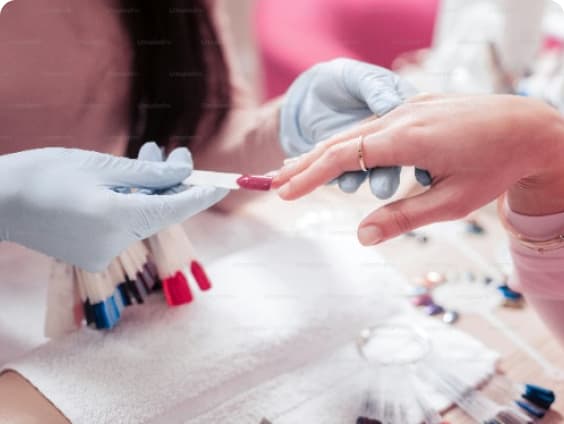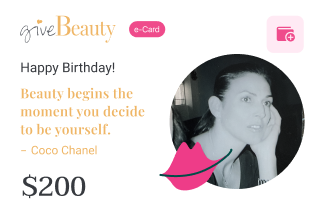Shaving Away Our Femininity? Why Girls Deserve Better Than TikTok Beauty Hacks
There are moments in motherhood that leave a mark. For me, it was during an ordinary hug. My daughter—14, vibrant, beautiful, just stepping into womanhood — pressed her cheek against mine. But instead of that velvety softness I expected, I felt something rough. Almost like stubble. It happened again and again until I finally asked. She answered quickly, almost defensively: “I shave my face.” My heart sank. A young girl—shaving the most delicate, feminine, visible part of her body? I remembered friends with darker hair who went to trained estheticians for laser treatments. But shaving? That felt unthinkable. The answer was sitting right there in her daily scroll. TikTok. Instagram. YouTube shorts. Between “get ready with me” clips and “my skincare routine” videos, she had stumbled into a trend now branded as “microplaning” or “dermaplaning.”
The Social Media Machine
Like any mum determined to protect her child, I dug deeper.
What I found was disturbing: influencers, including a few public faces, gliding razors across their faces, smiling for the camera, selling it as the “secret” to smooth skin and flawless makeup. The message was clear: If you want to be beautiful, you need to do this too.
Scroll through the comments, and you’ll see the pushback—“Guys, don’t give in, it’s not worth it.” “Never.” But those voices are drowned out in a sea of likes, shares, and algorithm-driven hype.
Even so-called “established” beauty outlets have jumped in, offering glossy how-to guides on dermaplaning—as if this were just another fun trick.
I read them all. And not one mentioned the obvious: shaved skin doesn’t stay baby-soft. Within hours, it feels rough, coarse. I’ve felt it on my daughter who has the light, delicate hair of a blond girl. Are we really supposed to trade centuries of natural softness for a quick makeup hack? It’s absurd. It makes me sick. Women have fought too hard, for too long, to reduce beauty to scraping away our femininity with a razor.
Some women swear by dermaplaning—Eva Mendes among them. And when it’s done right, under professional hands, there’s no debate: dermaplaning is a clinical treatment. By definition, it should only ever be performed by a licensed esthetician or dermatologist, using a sterile surgical scalpel to gently exfoliate the skin and remove fine vellus hair under strict sanitary conditions. It’s precise, it’s controlled, and yes—it needs to be maintained regularly.
But let’s be clear: what’s flooding social media feeds and landing in front of our daughters is not that. It’s a dangerous, cut-rate, DIY knockoff. And that’s where the problem lies.
The real danger here isn’t only the act itself. It’s the normalization. A viral stunt repeated often enough stops looking like a choice. It starts to feel like an obligation. And that’s how girls lose control over their own definition of beauty.
Beauty or Burden?
One young blogger captured this perfectly. She admitted she didn’t know how to feel: was face shaving just another impossible beauty standard, another way women erase themselves to fit in? Or was it progress—one step toward normalizing facial hair?
But when she watched young women shaving their entire faces—even foreheads—her unease grew. And I felt it too.
This is where wisdom matters. To me, that means honoring our natural selves before the world convinces us to scrape it away for approval.
What Our Daughters Deserve
Let’s be real. Teens today aren’t just testing eyeliner or lip gloss. They’re navigating a digital minefield where half-baked advice and influencer fads can rewire how they see themselves.
That’s why silence isn’t an option. Our daughters need to know the difference between a viral trick and professionally guided self-care.
Licensed estheticians, dermatologists, and beauty pros spend years studying skin. They understand long-term consequences and the science behind healthy beauty. A 30-second TikTok tutorial does not.
When we guide our kids toward professional self-care, we teach them beauty is about feeling good—not chasing the latest social media dare.
Protect Girls. Protect Beauty. Protect Pros.
Self-care isn’t shaving your face because a stranger online said so. Self-care is a facial with a trained esthetician who understands your skin. It’s a massage that melts away stress. It’s a haircut that lets you see yourself more clearly in the mirror.
It’s about trust. Safety. Dignity.
At giveBeauty, that’s the heartbeat of what we do. A universal gift card that connects people to licensed beauty, health, and wellness professionals—the ones who know how to protect, heal, and uplift.
The Call to Parents—and to Girls
To mums: talk to your daughters. Hug them. Touch their cheeks. Ask what they’re learning online. They may roll their eyes, but they need your voice louder than the endless scroll.
To girls: you are already beautiful. Your skin is not a flaw to erase. You don’t need to scrape away your femininity for likes.
To beauty professionals: keep doing what you do best—protecting, guiding, and helping us shine in ways no influencer ever could.
Because beauty isn’t found in shaving it all away. Beauty is found in caring for what we’ve been given—with respect, expertise, and love.
Self-care is not a trend. It’s a gift. One worth protecting.
 Cute Nails
Cute Nails


